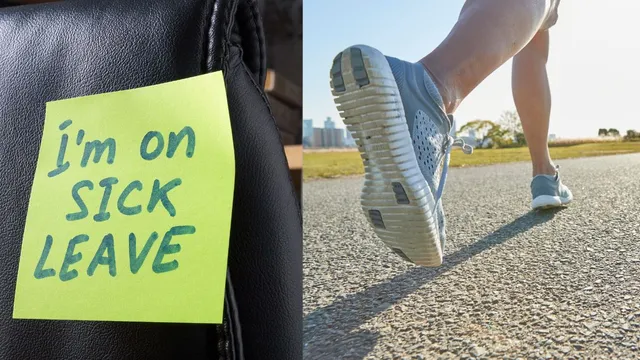- By Shivangi Sharma
- Mon, 10 Nov 2025 02:06 PM (IST)
- Source:JND
A controversial labour dispute in China has touched off a wide-ranging debate over workers' rights, privacy, and employer surveillance. The case, from 2019, gained renewed attention after China's Ministry of Justice shared details on its official social media account, sparking fresh online discussion.
The employee, identified only by his surname Chen, worked for a company in Jiangsu province. In February and March 2019, he applied for sick leave twice for a work-related back strain and each time submitted legitimate medical certificates issued by a hospital. After resting for nearly a month, he eventually returned to work.
Complications emerged when Chen later reported continued pain-this time in his foot-and sought further sick leave. As days stretched on, the company grew suspicious and ordered him to the office to provide updated medical records. When Chen arrived, he was surprised to find a security guard physically blocking his way into the building, a move that escalated tensions between the two sides.
Company Sacks Him For Absenteeism
Shortly thereafter, the company informed Chen that his services were terminated for absenteeism and dishonesty. Management alleged that he had feigned his illness to receive paid leave. Chen, in disbelief, filed a petition for labour arbitration, citing grounds that all his absences were medically supported. After an investigation, labour authorities ruled in his favour, declaring his sacking unlawful and ordering the company to pay him Rs 14 lakh in compensation.
Employer Appeals With Surveillance Footage
The company, unhappy with the ruling, took the matter to court, bringing new evidence that included surveillance footage showing Chen running toward the office on the same day he reported foot pain. It also submitted chat logs that purportedly showed Chen had walked over 16,000 steps that day, while claiming this undermined his injury claims.
Chen described the evidence as misleading because a lot of context was lacking. He provided scans from the hospital that showed back and foot problems, reiterating that despite the pain, mobility at times could be achieved.
The court has upheld the arbitration ruling, reiterating that Chen followed correct procedure for medical leave and the company did not have sufficient grounds for dismissal. The judgment has sparked debate again in China about excessive workplace surveillance, employee privacy, and stresses injured workers face while working.
ALSO READ: Indian Father-Daughter Missing In Nepal For Weeks Found Dead Near Remote Monastery In Manang

